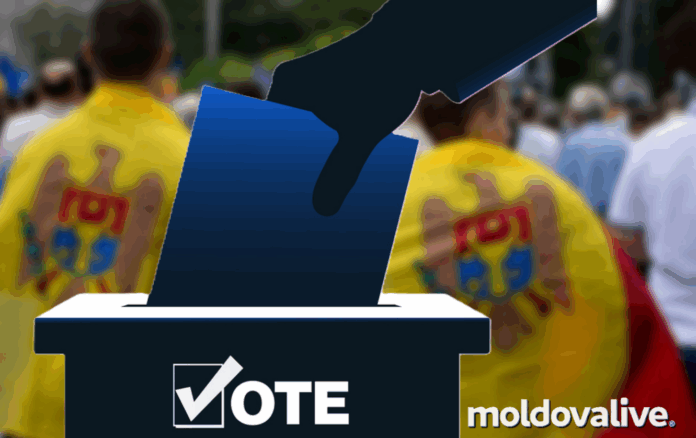Voting outside the country’s borders has become a key electoral reality for the Republic of Moldova. With nearly one-third of Moldova’s active labor force living abroad, their participation in elections plays a vital role in securing democratic legitimacy, states the Association for Participatory Democracy ADEPT. This non-paper provides a detailed analysis of how Moldova’s legal framework for diaspora voting has evolved and highlights the international commitments the country has made in this area.
A Constitutional Right for All Citizens, Regardless of Location
Article 38 of Moldova’s Constitution explicitly guarantees the right to vote, stating that “the will of the people represents the basis of state power.” The Constitution affirms that people express their will through free elections with universal, equal, direct, and freely cast suffrage. The Electoral Code adopted in 2022 reiterates this principle in Article 4, which states that “every vote holds equal legal power.”
The Constitutional Court has reinforced this approach. Since Decision No. 15 from May 27, 1998, the Court has emphasized that authorities cannot condition the right to vote on administrative factors such as place of residence or consular registration. The Court has ruled that any barriers that could prevent citizens from voting are unconstitutional and declared that voter registration must be passive, meaning automatic and handled by authorities, without requiring additional action from voters.
Expanding Legal Access for Voters Abroad
From 1992 to 1996, Moldovan citizens living abroad could vote only at polling stations in the country’s embassies and consulates. Although restrictive, the authorities gradually expanded this system.
The new Electoral Code elevated in 1997 the right to vote abroad to a general principle. It required diplomatic missions to ensure voting conditions, regardless of a voter’s legal or administrative status in the host country.
FOR THE MOST IMPORTANT NEWS, FOLLOW US ON TWITTER!
In 2010, the government took a significant step by passing Law No. 119, which allowed authorities to organize polling stations outside embassies in towns and cities where Moldovan communities exist. Inspired by practices from countries like Bulgaria, Moldova adopted a flexible system that required just 20 citizens to request a polling station.
The same law introduced online pre-registration, not as a voting condition but as a tool for estimating demand and improving administrative planning. Authorities never used this pre-registration as a legal requirement to vote.
In 2017, the legal framework improved further. Lawmakers established clear criteria for opening polling stations abroad, including data from diplomatic missions, statistical information, pre-registration, and participation in previous elections. The 2022 Electoral Code retained and expanded these criteria. For example, it now requires at least 500 Moldovan citizens in a locality to open a polling station, conditional on the host country’s approval.
Today, the Central Electoral Commission organizes out-of-country voting based on predictable, transparent, and proportional criteria that reflect the demographics and mobility of Moldovan citizens abroad.
Aligning with International Standards
Moldova is not alone in this journey. Most democratic countries have adopted policies that expand voting rights beyond national borders. As of 2025, more than 140 countries allow citizens to vote in national elections from abroad, compared to only 60 in 2000.
International standards strongly support this right. The Venice Commission, in its 2011 Report on Out-of-Country Voting, emphasized that any country granting this right must provide fair and practical conditions for exercising it. It also recommended that all voters abroad, temporarily or permanently residing outside the country, should enjoy the same electoral rights as domestic voters.
Resolution 1459 of the Parliamentary Assembly of the Council of Europe (2005) went further, calling member states to “refrain from imposing unnecessary obstacles” that hinder the right to vote abroad.
The European Court of Human Rights supports this view. In the 2012 case Sitaropoulos v. Greece, the Court ruled that once states grant the right to vote abroad, they must guarantee voters can exercise it effectively.
Conclusion
Moldova has developed a coherent, modern legal framework that aligns with European standards to ensure citizens abroad can exercise their voting rights. Authorities have built this system progressively, without interruptions, while respecting the principle of equal suffrage and Moldova’s international commitments.
Any attempt to restrict this right through administrative barriers like mandatory consular registration or arbitrary measures to reduce the impact of out-of-country votes violates the letter and spirit of the Constitution. Worse, it threatens public trust in the integrity of the electoral process.
Upholding voting rights for all citizens, regardless of where they live, serves as a litmus test for democratic health. Moldova must continue protecting this right as a fundamental duty of the state.
Votarea Peste Hotare. Pro or Contra by Realitatea.md
The Association for Participatory Democracy (ADEPT) is an independent think tank that analyzes political, electoral, and socio-economic developments in Moldova and the region. Since 2000, ADEPT has promoted democratic values and encouraged active citizen engagement in public life.
Since 2018, ADEPT has served as the Secretariat for the Coalition for Free and Fair Elections (CALC)—a civil society platform ensuring transparency, inclusion, and integrity in Moldova’s electoral processes.


